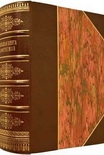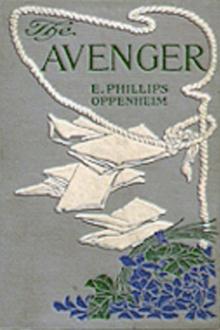Hitler's Terror Weapons, Brooks, Geoffrey [cat reading book .txt] 📗

Book online «Hitler's Terror Weapons, Brooks, Geoffrey [cat reading book .txt] 📗». Author Brooks, Geoffrey
107.von Below, op. cit.
108.Myhra, op. cit.
109.Gregory Douglas: Geheimakte Gestapo Müller, Band II, Druffel, 1996.
110.Robert Wilcox: Japan’s Secret War, Marlowe, 1995.
111.Gimpel’s mission is described in Günther Gellermann: Der andere Auftrag – Agenteinsätze deutscher U-boote im Zweiten Weltkrieg, Bernard & Graefe, 1997: also see Erich Gimpel: Spion für Deutschland, Süddeutscher Verlag, 1956. Gimpel was sentenced to death for espionage but was reprieved three days before the date set for his execution, 15 April 1945, benefiting from the traditional amnesty granted the condemned following the death of a President. He served ten years in Fort Leavenworth before his release.
112.Wachsenberg Document, Arnstadt Municipal Archives, Report of Committee of Enquiry to Establish Local History, DDR Department of Culture District Committee Depositions of 16 May 1962 of witnesses who in March 1945 had been (1) Wachsenburg watchtower keeper, (2) a rocket technician and (3) a fuel storage tank builder (4) an inmate of Ohrdruf concentration camp.
113.Karsten Porezag: Geheime Kommandosache, Geschichte der V-Waffen und der geheimen Militäraktionen des Zweiten Weltkrieges an Lahn, Dill und im Westerwald, Verlag Wetzlardruck, 1996.
114.US forces crossed the Rhine at Oppenheim on 23 March 1945 and at Wesel on the 24th. The Ruhr area was brought under threat within the next few days.
115.Vajda and Dancey: German Aircraft Industry and Production 1933–1945, Airlife, 1998.
116.Kurowski, op. cit.
117.Smith and Creek: Me 262 Vol II, Classic Publications 1999.
118.and 119. Friedrich Georg: Siegeswaffen I, Amun Verlag 2000, from his personal file PH/Int./Adm No XXXI-3, “microfilm USAF/117”. Herr Georg informed this author in an E-mail that the material was obtained by some form of negotiated process.
120.USS NationalArchive, Box RG 260 Entry 121, Box 136: cable 20.4.1945.
121.Jochen Brennecke: Haie im Paradies: der deutsche U-bootkrieg in Asiens Gewässern, 1943–1945, Heyne, Munich, 1973 at pp. 26–34. U-180 sailed from Bordeaux for Japan in August 1943 with a cargo including mercury, radar equipment, dismantled V-weapons, blueprints and technical personnel and was mined and sunk off the mouth of the Gironde Estuary on the 22nd.
122.The US authorities have never admitted the presence of this Me 262 jet fighter aboard U-234 and it was not included on any of their Loading Lists. The Japanese television network company NHK Tokyo, which produced a documentary in tribute to Hideo Tomonaga, showed film extracts originating from the US Archive in which U-234 passenger August Bringewald, the Messerschmitt aeronautical engineer, was shown examining an Me 262 jet in apparently good condition at Wright Field air force base in May 1945. In the (somewhat romanticized) biographical account of his career The Warring Seas (A. V. Sellwood: White Horse Publishers, 1955), Fehler told the author then that there was a dismantled Me 262 jet aircraft aboard U-234. As commander it is not likely that he would be mistaken.
123.Feindfahrten, Neff Verlag, Vienna, 1983 and in various reprints. An abbreviated English language version by this author appeared under the title Hirschfeld – The Story of a U-boat NCO 1940–1946 (Leo Cooper and USNIP, 1997, also in Orion paperback and Cassells Military).
124.Reported in Geoffrey Brooks: Hitler’s Nuclear Weapons, Leo Cooper, 1992, after correspondence with Wolfgang Hirschfeld, 21.1.1991. Since the US Unloading Manifest shows only ten containers, I pressed him on this matter and suggested his memory was at fault. “I know what I saw,” he said, “and there were definitely more than fifty of those little heavy cases.” The total weight of all material aboard U-234 was 260 tonnes.
125.Letter from Wolfgang Hirschfeld, 21.3.1998.
126.Fehler’s assumption was uncharitable. On 15 May 1945, when the diplomatic missions and Party organs of the Third Reich in East Asia were finally closed down, German citizens were interned for the remainder of the conflict under the most hospitable and generous conditions.
127.The documents relating to the U-234 affair at the US National Archive are located in Box RG38, Box 13, Documents OP-20-3-G1-A dated May 1945 (Unloading Manifests) and 373/3679/B0x 22/folder OP-16-Z, Day file 1.1.1945 which includes the Nieschling Memorandum dated 24 May 1945. Judge Nieschling was interviewed by Lt Best. Under a heading Regarding “Uranium Oxide” and other cargo aboard U-234 the material part of the report reads: “PoW does not know anything in particular about this ore, but only heard that it was valuable and that it was to be exchanged for some other valuable ore that the Germans needed. The meaning behind the ore would, according to PoW, be known by the technician FKpt Falck. He took some secret courses before he boarded the U-boat. He was to be chief technician on all naval matter under Admiral Wennecker.”
128.Letter from Staatsanwalt Wacker of the Zentral Stelle der Landesjustizverwaltungen, Ludwigsburg dated 2 September 1998.
129.Wilcox, op. cit.
130.Henshall, op. cit.
131.Opinion of Alaskan lawyer Sidney Trevethan, title 552 section (a) sub-sections (3) and (6)(A) USCA, in The Controversial Cargo of U-234, Revision 13, January 1999.
132.Kunihiko Kigoshi, letter of 7.8.1998 reported in The Controversial Cargo of U-234, op. cit.
133.Yomiuri Shimbunsha, Showashi no Tenno (The Emperor and Showa History), Tokyo, 1968, vol 4, pp.146-148: John W Dover, Japan in War and Peace, New Press, 1993, p.80.
134.Author’s correspondence: letter from Professor Rohwer, 28 March 1996.
135.Charles W. Stone: the cited material was illustrated in Lasuto U-boto Noshinjitsu, in Sekai Shuh (World Affairs Weekly), Sept. 1997. The





Comments (0)